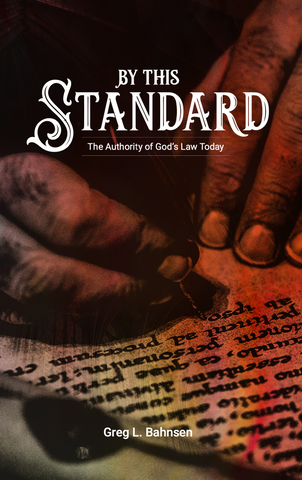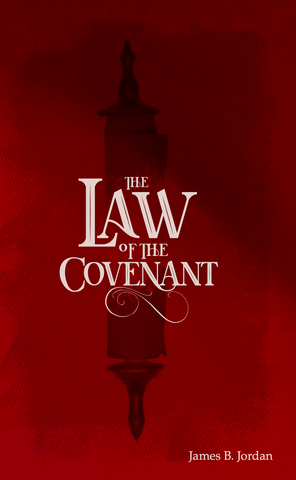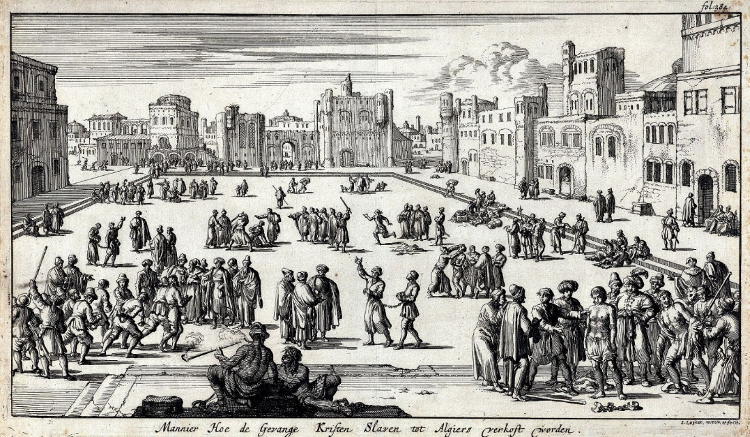Please help us reach $10K in donations for a matching grant
“The United States didn’t inherit slavery from anybody. We created it.” So said Democratic Senator Tim Kaine on the Senate floor.
Talk about rewriting history. The Romans and Greeks were deep into slavery. Long before them, the Israelites were kept in captivity by the Egyptians as slaves. They were under the authority of “taskmasters” who afflicted “them with hard labor” (Ex. 1:11). As the Israelites multiplied, “the Egyptians compelled the sons of Israel to labor rigorously” (1:13).
Blacks sold other blacks into slavery. Muslims sold white Christians into slavery. “According to Robert Davis, between 1 million and 1.25 million Europeans were captured by Barbary pirates and sold as slaves in North Africa and the Ottoman Empire between the 16th and 19th centuries.” While some dispute the number of captured British, there is no denying that Muslims practiced slavery. Tribute was paid to Muslim leaders for the release of captured Americans.
Payments in ransom and tribute to the Barbary states had amounted to 20% of United States government annual revenues in 1800. It was not until 1815 that naval victories ended tribute payments by the United States. Some European nations continued annual payments until the 1830s. The white slave trade and markets in the Mediterranean declined and eventual disappeared after the European occupations.
None of this is to excuse the American slave trade, the slave institution, the plantation system, the purchase and sale of black people, breeding policies to maintain slavery, the splitting up of families, and those who used the Bible to support chattel slavery.

By This Standard: The Authority of God's Law Today
God's Law is Christianity's tool of dominion. This is where any discussion of God's law ultimately arrives: the issue of dominion. Ask yourself: Who is to rule on earth, Christ or Satan? Whose followers have the ethically acceptable tool of dominion, Christ's or Satan's? What is this tool of dominion, the Biblically revealed law of God, or the law of self-proclaimed autonomous man? Whose word is sovereign, God's or man's?
Buy NowFor years, many critics of the Bible have claimed that the Bible supports slavery as it was practiced in the United States and the Caribbean. If this is true, then why was an edited Bible created for slaves?
According to NPR, Parts of the Holy Bible, Selected For the Use of the Negro Slaves, in the British West-India Islands, is on display at the Museum of the Bible in Washington, D.C., and is one of only three known copies of this abridged version of the King James Bible. Printed by the Missionary Society For the Conversion of Negro Slaves, the text of the Bible was used by missionaries from England to convert slaves to Christianity.
The edited version left out anything “that might lead slaves to turn on their masters. For instance, Moses doesn’t even exist until he is an old man in the ‘Slave Bible.’”
Everything from Genesis 45 to Exodus 19 was cut out. Anthony Schmidt, associate curator of Bible and Religion in America at the museum, explained, “What they’ve cut out is the story of the Israelites’ captivity in Egypt and their eventual liberation and journey to the promised land.”
The censored version removed 90 percent of the Old Testament and 50 percent of the New Testament, eliminating potentially seditious passages such as Exodus 21:16, which reads: “And he that stealeth a man, and selleth him, or if he be found in his hand, he shall surely be put to death.”
Exodus 21:16 is a key anti-chattel slavery passage. Many of this nation’s earliest settlers paid for their passage as indentured servants. Indentured servitude is neither unbiblical nor unconstitutional.
A thief who was unable to make restitution for a property crime could be sold into servitude for his theft (Ex. 22:3b). Even after the abolition of slavery, indentured servitude was retained by the Constitution as a legitimate form of punishment: “Neither slavery nor involuntary servitude, except as a punishment for crime whereof the party shall have been duly convicted, shall exist within the United States, or any place subject to their jurisdiction” (Amendment XIII, Section 1). Unfortunately, this section of the Amendment has been used for incarceration for property crimes and drug-related crimes.
We should, therefore, distinguish between slave (man stealing) and bondservant (indentured servant). We should also keep in mind that the word “slave” appears only once in the King James Bible (Jer. 2:14a), as does the word “slaves” (Rev. 18:13). The word slavery does not appear anywhere in the Authorized or King James translation of the Bible.[1]
There is no indication that Exodus 21:16 only has Israelites in mind, as some argue. If it does, then verse 12 would also only apply to Israelites since its language is identical to what we find in verse 16:
• “He who strikes a man so that he dies shall surely be put to death” (21:12).
• “And he who kidnaps a man whether he sells him or he is found in his possession, shall surely be put to death” (21:16).
James B. Jordan offers a good summary of the issues involved:
The Bible punishes all man-stealing with a mandatory death penalty. In Deuteronomy 24:7, the kidnapping of covenant members is particularly forbidden, but in Exodus 21:16, all man-stealing is prohibited. It might be maintained that if we read v. 16 in context of v. 2, it is only Hebrews who are protected and avenged by this law. The text simply says “man,” however, and there is no indication in the immediate context (vv. 12, 14) that “man” is restricted to covenant members.[2]
We know that in the New Testament, Paul condemns slave traders (kidnappers) in 1 Timothy 1:10:
But we know that the Law is good, if one uses it lawfully, realizing the fact that law is not made for a righteous person, but for those who are lawless and rebellious, for the ungodly and sinners, for the unholy and profane, for those who kill their fathers or mothers, for murderers and immoral men and homosexuals and kidnappers and liars and perjurers, and whatever else is contrary to sound teaching.

The Law of the Covenant
If we take a man-centered approach to these laws, we might say that the purpose of this legislation is only to ensure human prosperity. Such an approach to the law of God misses the most basic point. These laws show us God's own genuine personal care for His world, and as such these laws cannot be altered by human whim. To be sure, the Bible is man-oriented, and thus obedience to these laws will improve human life; but the laws are God's, and cannot be changed by man. Thus, as we examine the laws in Exodus 21-23, our first concern must be the glory of God, not whether these laws seem right to us sinful men. If we start with God, we will soon see how these laws also improve human life.
Buy NowThe book of Revelation considers those who traffic in “slaves and human lives” to be immoral and destined for judgment (18:13). Nowhere does the New Testament support trafficking in slaves. Paul’s letter to Philemon does not support the notion that the New Testament tolerated chattel slavery. Onesimus was probably a bondservant who owed a debt to Philemon. Paul encourages the runaway Onesimus to return to Philemon and encourages Philemon to release Onesimus upon his arrival. Paul promises to pay Philemon if Onesimus “owes you anything” (Phil. 18). Paul’s mention of a debt might indicate that Onesimus was an indentured servant.[3]
The late Charles Colson applied the principles of Old Testament law regarding restitution and property crimes to today’s judicial system:
Recently I addressed the Texas legislature…. I told them that the only answer to the crime problem is to take nonviolent criminals out of our prisons and make them pay back their victims with restitution. This is how we can solve the prison crowding problem.
The amazing thing was that afterwards they [the legislators] came up to me one after another and said things like, “That’s a tremendous idea. Why hasn’t anyone thought of that?” I had the privilege of saying to them, “Read Exodus 22. It is only what God said to Moses on Mount Sinai thousands of years ago.”[4]
The history of the enslavement of African blacks has impeded the gospel. Gary North writes: “Slavery as a system came to North America in the early eighteenth century, and it was grounded in the racist prejudices that increased with every shipload of victimized blacks. Racism seems to have been the foundation of slavery rather than the reverse.” [5]
With the coming of Christ, Christians are to preach the gospel to make disciples of the nations, making them, as well as everyone, “slaves to Christ,” not slaves to other men.
[1] Gary North, Tools of Dominion: The Case Laws of Exodus (Institute for Christian Economics, 1990), 121.
[2] James B. Jordan, The Law and the Covenant: An Exposition of Exodus 21–23 (Tyler, TX: Institute for Christian Economics, 1984), 104.
[3] See Brian J. Dodd, The Problem with Paul (Downers Grove, IL: InterVarsity Press, 1996), 81–110.
[4] Charles Colson, “The Kingdom of God and Human Kingdoms,” James M. Boice, ed. Transforming Our World: A Call to Action (Portland, OR: Multnomah, 1988), 154-55.
[5] North, Tools of Dominion, 180.

